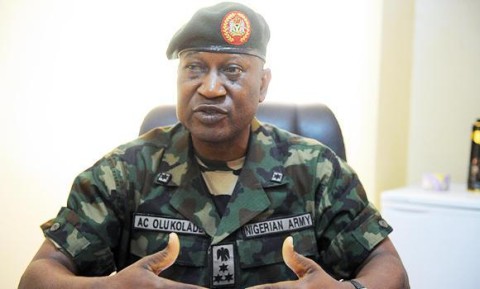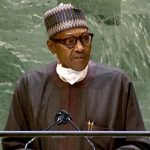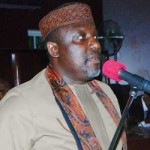Opinion: On Amnesty International’s Lopsided Report on the Nigerian Army
Articles/Opinion, Latest Headlines Tuesday, June 16th, 2015
By Uche Igwe – I have just read the report titled: Nigeria: Stars on their shoulders. Blood on their hands: War crimes committed by the Nigerian military, published by Amnesty International on alleged human rights abuses and extrajudicial killing committed by the Nigerian Army in the fight against Boko Haram insurgents. The horrifying details of offensive brutality and appalling atrocities committed by the military as contained in that report will unsettle anyone. For instance the report stated that about 1,200 persons suspected to be insurgents were killed by extrajudicial execution while about 7,000 other suspects died in several detention centres as a result of overcrowding, starvation, poor sanitation and lack of medical assistance. The report mentioned the names of members of the top military brass in Nigeria as those to be held responsible for the atrocities. The report indicated that the names of Major Gen. Obida Ethan, Maj. Gen Ahmadu Mohammed, Gen Azubuike Ihejirika, Air Marshall Alex Badeh, Gen Kenneth Minimah and Admiral Ola Ibrahim have been forwarded to the International Criminal Court (ICC) for investigation on war crimes and crimes against humanity. Really? I will comment on the appropriateness or not of that recommendation, later.
In general the report raised very germane issues worthy of increased scrutiny and attention. It has also elicited interesting debates within the country and beyond. The evidence that the Nigerian military and justice system needs reforms is quite overwhelming. However, the whole report appears to be is ill-timed wakeup call that is curiously one-sided. I know of the work of Amnesty International and had cause to seek their intervention in the past which they graciously granted. I will therefore find it difficult to ignore any issue they bring to public knowledge. However there have been wide concerns about the timing and impact of this particular report rather than the validity of the claims. I share some of those. It may just be a mere coincidence but that the report appeared at a time when President Buhari is working to rejig the military for a fresh onslaught against the insurgents, but it makes the whole thing look untidy if not suspicious. What could be the motive? Why will Amnesty work to ostensibly deny Nigeria the international support that is badly needed for a successful war against terrorism? Should such a reputable global organisation not be working to increase support for Nigeria rather than weaken it? How many other reports have been produced on human rights in other countries battling with terrorism? I know that there are all sorts of conspiracy theories going on about the issue of Boko Haram but it is not my intention find a place to fit the report in.
My major issue with the report is that it did not look at the issues holistically. It focused narrowly on the rights of the insurgents/detainees and civilian causalities and did not highlight the rights of those senselessly murdered by the numerous attacks of Boko Haram. It directly indicted the military combatants without any reference to the dangerous and unconventional nature of the warfare the soldiers face every day and the losses they have incurred in terms of personnel and equipment. I agree that there are many things that are wrong with the whole lingering battle against these insurgents by Africa’s largest army. There have been media reports of corruption, poor intelligence coordination, poor equipment, poor motivation and others. For me human rights abuse will be one of the least in hierarchy.
For an extremely violent and heavily armed group that is embedded in communities, like Boko Haram, it will difficult to flush them out successfully without unintentionally hurting civilians. It is almost impossible to identify them unless through the use of volunteer informants who are from such communities. We must not forget the support of the local vigilante groups that later became the Civilian Joint Task Force (JTF) which yielded some results. Reliance on such a method will be far from perfect and so some people will be sadly caught in the cross fire. I need an example elsewhere in the world where such a similar lethal group was successfully eroded and eventually exterminated with killing innocent bystanders. In fact some of the insurgents use civilians to insulate themselves from the military so that they can get the sympathy of organisations like Amnesty International whenever they are attacked. It is also possible that the military personnel are responding to frustrations from losing many of their colleagues from successful ambushes or sabotage from within in a very risky terrain like the Sambisa forest. A robust counter insurgency plan through coordinated but cover intelligence gather will help in the long term.
The report failed to capture or at least make reference to thousands of innocent citizens including women and children who have been murdered by the insurgents, some of them were even brutally beheaded. It did not talk about the abductions of people’s mothers, wives and sisters to sex slavery and the horrific experiences of those women who escaped it alive and the hundreds who died in captivity. It did not even mention the Chibok girls whose whereabouts are still unknown. What about the fate the rescued women among who 214 are said to be pregnant? I agree that there is a need to improve the sanitary condition of detention centres as suggested by the report but I rather will give priority to the condition in camps where internal displaced persons are being housed. Like the detainees and insurgents, these other people have rights too. The rights of the innocent should be considered before the right of an insurgent..commonsensically speaking. We cannot protect the rights of one set and ignore that of others.
The Amnesty report called for a prompt independent and effective – let me add thorough and comprehensive investigation about the Boko haram insurgency, the level of destruction it has caused the region, the estimated number of human losses and displacements, the military response to it as well as its impact on citizens. I disagree with the section that suggests that the International Criminal Court (ICC) should step in. The Nigerian government should be allowed to investigate the issues raised and determine appropriate punitive or remedial action. The Nigerian Army must have internal mechanisms of dealing with anyone found culpable. On a positive note, the talk about decongesting the prisons in Nigeria will succeed if it is accompanied with a comprehensive reforms of our justice system. This is another area that the report threw up that no one can ignore. Many of us know that the war on terror cannot be won by force alone but I insist that we must get our priorities right as a country. We have either wage a decisive battle against these mindless terrorists and decimate them now or keep playing to Western prescriptions of human rights niceties and live with the deadly scourge for some time to come. The choice is ours to make. After all the late legendary Afro beat musician Fela Anikulapo Kuti said that human rights na my property. We must not therefore allow Amnesty International to teach us human rights. We must not allow Boko Haram and their cohorts win this war.
Uche Igwe wrote from Department of Politics, University of Sussex, United Kingdom. You can reach him on ucheigwe@gmail.com
Related Posts
Short URL: https://www.africanexaminer.com/?p=24046






















